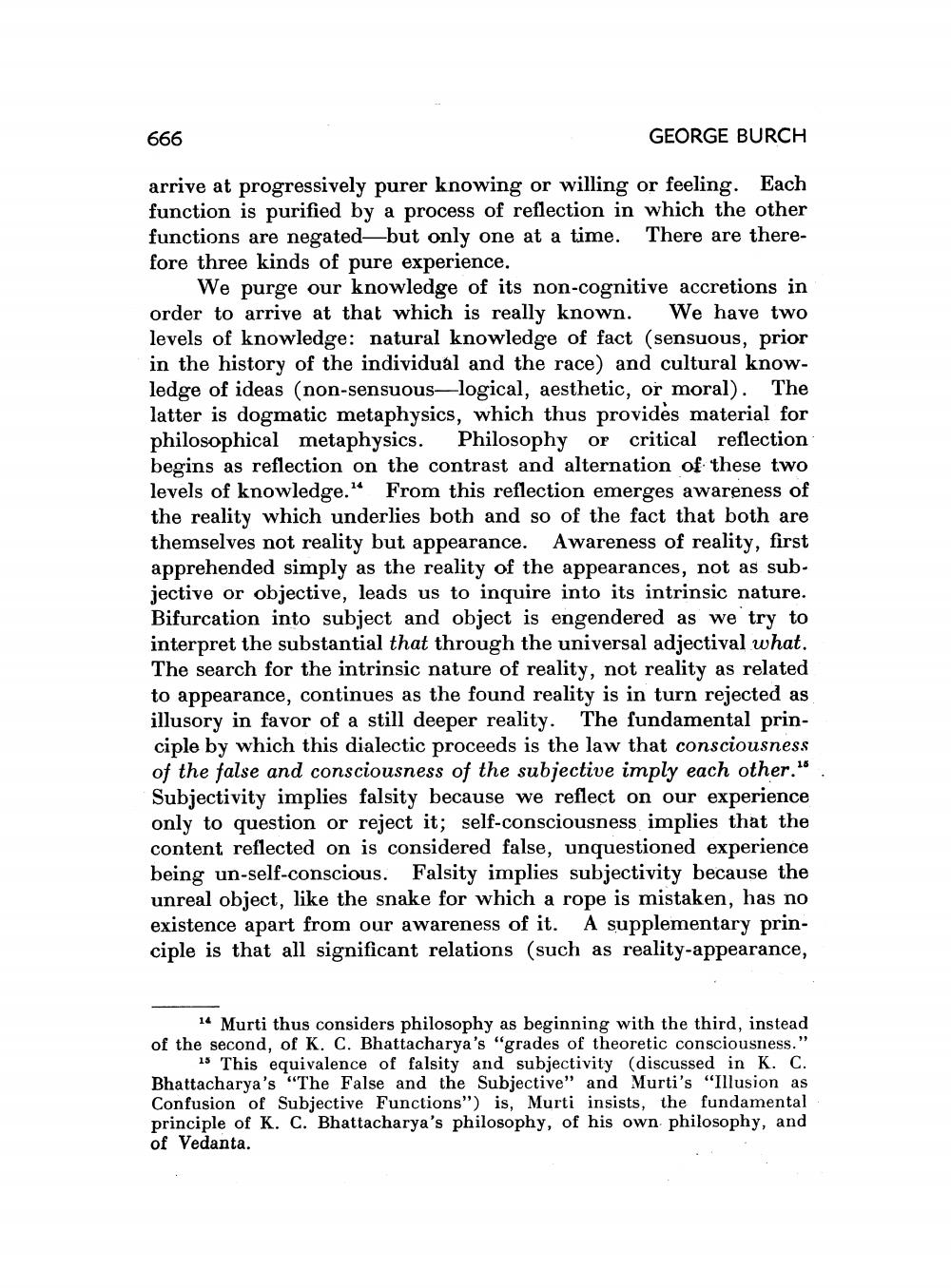________________
666
GEORGE BURCH
arrive at progressively purer knowing or willing or feeling. Each function is purified by a process of reflection in which the other functions are negated—but only one at a time. There are therefore three kinds of pure experience.
We purge our knowledge of its non-cognitive accretions in order to arrive at that which is really known. We have two levels of knowledge: natural knowledge of fact (sensuous, prior in the history of the individual and the race) and cultural knowledge of ideas (non-sensuous—logical, aesthetic, or moral). The latter is dogmatic metaphysics, which thus provides material for philosophical metaphysics. Philosophy or critical reflection begins as reflection on the contrast and alternation of these two levels of knowledge." From this reflection emerges awareness of the reality which underlies both and so of the fact that both are themselves not reality but appearance. Awareness of reality, first apprehended simply as the reality of the appearances, not as subjective or objective, leads us to inquire into its intrinsic nature. Bifurcation into subject and object is engendered as we try to interpret the substantial that through the universal adjectival what. The search for the intrinsic nature of reality, not reality as related to appearance, continues as the found reality is in turn rejected as illusory in favor of a still deeper reality. The fundamental principle by which this dialectic proceeds is the law that consciousness of the false and consciousness of the subjective imply each other. Subjectivity implies falsity because we reflect on our experience only to question or reject it; self-consciousness implies that the content reflected on is considered false, unquestioned experience being un-self-conscious. Falsity implies subjectivity because the unreal object, like the snake for which a rope is mistaken, has no existence apart from our awareness of it. A supplementary principle is that all significant relations (such as reality-appearance,
14 Murti thus considers philosophy as beginning with the third, instead of the second, of K. C. Bhattacharya's "grades of theoretic consciousness."
| 15 This equivalence of falsity and subjectivity (discussed in K. C. Bhattacharya's "The False and the Subjective" and Murti's "Illusion as Confusion of Subjective Functions") is, Murti insists, the fundamental principle of K. C. Bhattacharya's philosophy, of his own philosophy, and of Vedanta.




